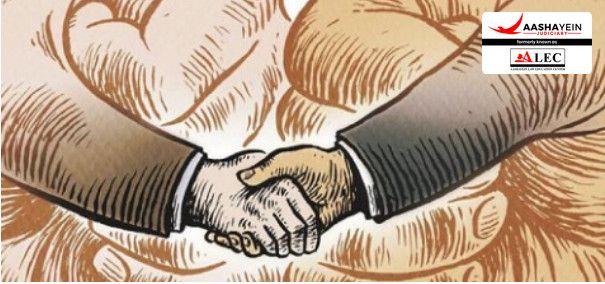Introduction
A significant judgment concerning the setting aside of a compromise decree passed under Order 23 Rule 3 of the Civil Procedure Code, 1908 (CPC). The Court's ruling emphasized the need for strict compliance with the procedural requirements for recording a compromise and established the grounds for recalling a decree based on fraudulent or unlawful compromise.
Facts
A suit was filed by Banwari Lal (Appellant) on 14th September 1990 concerning disputed land. A compromise petition was filed, stating that both parties had agreed to a settlement, and the possession of the disputed land was handed over to the respondent, Chando Devi. However, the compromise petition was not signed by the respondent or their counsel. The appellant’s counsel, Shri Soran Ram, stated that the appellant had provided a thumb impression in his presence.
On the same day, the Trial Court dismissed the suit as withdrawn based on the compromise and passed a decree accordingly. On 3rd April 1991, the appellant filed an application to recall the order, alleging fraud and claiming that the compromise was fabricated by his counsel, who colluded with the respondent.
The appellant argued that the compromise was void, as it failed to meet the requirements of Order 23 Rule 3 of the CPC. The Trial Court found that the compromise petition lacked the required signatures and concluded that fraud had been committed. Consequently, it recalled the order and restored the suit.
The Respondent filed a revision before the High Court, which set aside the Trial Court’s decision, ruling that the petition filed on 27th February 1991 was an application for withdrawal under Order 23 Rule 1, not a compromise. It stated that the appellant had voluntarily withdrawn the suit, making the recall improper.
The appellant then filed an appeal against the High Court's decision, claiming that the compromise was fraudulent and the recall order should be upheld.
You can also read the Blog by visiting [Blog]
For more information, visit [Aashayein Enquiry Section]
Issues
- Whether the compromise decree recorded by the Trial Court can be set aside in the present case?
- Whether the compromise petition was legally valid under Order 23 Rule 3 of the CPC?
Contentions of the Petitioner
The appellant contended that the compromise petition was fraudulent and void, as it did not comply with the requirements of Order 23 Rule 3 of the CPC. He argued that fraud was committed by his counsel, who colluded with the respondent to fabricate the compromise petition. The appellant asserted that the compromise petition lacked the signatures of both parties and their counsels, thus making the decree unlawful.
Contentions of the Respondent
The respondent contended that the compromise petition was filed in good faith and that the appellant voluntarily withdrew the suit under Order 23 Rule 1. The respondent argued that the Trial Court erred in recalling the order, as the decree was based on the appellant’s voluntary withdrawal and not a compromise. The respondent sought the dismissal of the appeal and the upholding of the High Court’s decision.
Court's Analysis
- The Court examined the purpose of amendments in Order 23 of the CPC, particularly the 1976 Amendment, which introduced safeguards for recording compromises. These safeguards required written agreements that were signed by both parties and were lawful under the Indian Contract Act.
- The Court highlighted the following procedural requirements:
- Compromise must be in writing and signed by both parties and their counsels.
- The compromise must be lawful, and fraudulent compromises are void.
- Rule 3A of Order 23 prohibits filing a separate suit to set aside a decree based on an unlawful compromise. Instead, challenges must be made to the court that recorded the compromise.
- The Court noted that the compromise petition in this case did not fulfill the mandatory requirements under Order 23 Rule 3 of the CPC, as it was not signed by both parties or their counsels. Additionally, the Court found that fraud was involved, as the appellant was misled by his counsel.
- The Trial Court had rightly exercised its authority under Section 151 of CPC and the proviso to Rule 3 to entertain the application challenging the legality of the recorded compromise. The Court observed that the compromise was fraudulent and thus void under the explanation to Rule 3.
- The High Court had erred in treating the compromise petition as an application for withdrawal under Order 23 Rule 1, as the issues at hand clearly related to the fraudulent nature of the compromise.
Conclusion
The Supreme Court ruled in favor of the appellant and allowed the appeal. The Court set aside the High Court’s decision and upheld the Trial Court's decision to recall the order and restore the suit. The Court emphasized that a compromise recorded under Order 23 Rule 3 must meet the statutory requirements, and any compromise found to be fraudulent or unlawful can be challenged and set aside by the court that recorded it. The case established that the only remedy available against a compromise decree under Order 23 Rule 3 of the CPC is to recall any decree that is found to be unlawful.

